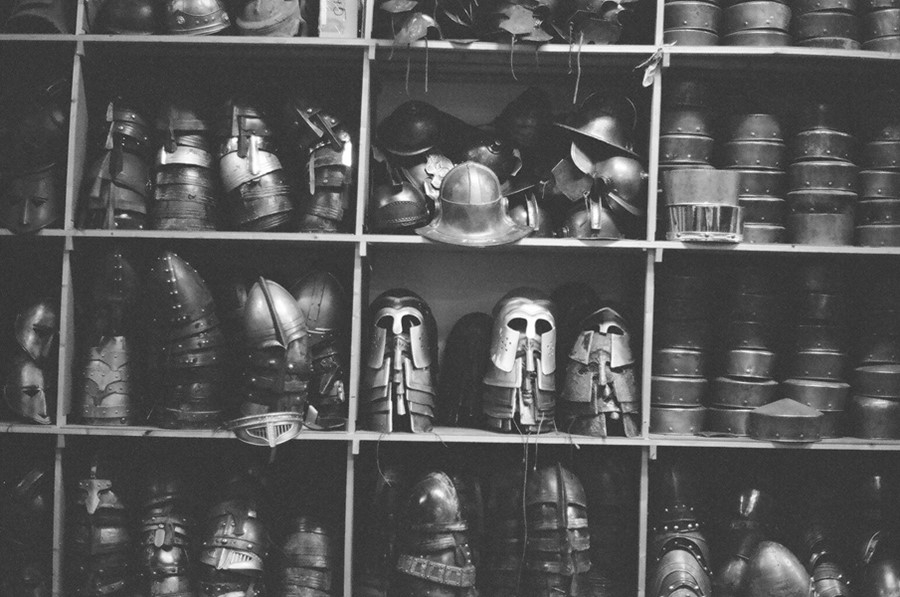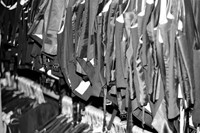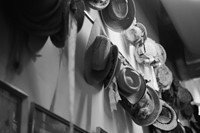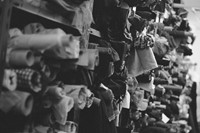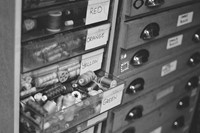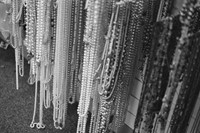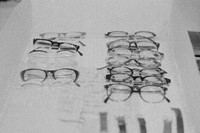Eight miles is the equivalent to walking from Herne Hill to Hackney Downs. It is the Kings Road to Kings Cross, or the name of a road in Michigan. It is also the length of hanging rails in Angels Costumiers in Hendon, which total six million
Eight miles is the equivalent to walking from Herne Hill to Hackney Downs. It is the Kings Road to Kings Cross, or the name of a road in Michigan. It is also the length of hanging rails in Angels Costumiers in Hendon, which total six million individual items. Founded in 1840 by Morris Angel, what began as a small family tailoring business in Covent Garden has grown to become the world’s largest costume house, with a staff of 120 and a healthy £10million annual turnover. It is currently owned by Tim Angel. His three children (and one dog) also work with him, all of whom have grown up with costume as their backdrop.
Over the years, Angels has dressed Leo and Kate, multiple James Bonds and Obi-Wan Kenobi, whose cloak was auctioned in 2005 for £55,000. More recently they have transformed a cast of spies in the Bafta-acclaimed Tinker Tailor Soldlier Spy and sent an army of soldiers into battle for War Horse. They provided costumes for four out of five of this year’s Oscar nominated films, including Jane Eyre and W.E. and hold credit for previous winners Gladiator and Alice in Wonderland.
A tour round Angels is like stepping down the rabbit hole. You submerge into a surreal world where ecclesiastical gowns and combat masks are juxtaposed beside regency dresses and sci-fi paraphernalia. There is an enchanting badge and button room of Royal embroidery, while brocaded regimental jackets jostle beside Hawaiian accessories outside. From the whimsical and outlandish to the historical and the very ordinary, Angels is a sweet shop for the sartorially inclined. Like an open wound it exposes the pain of our past (lines of concentration camp striped pyjamas and Nazi insignia serve as a haunting reminder) while also celebrating its splendours and absurdity in the form of "Cinderella rags" and Victorian ruffs.
"Each garment appears to have its own character, and when you emerge from the world of Angels into the stark light of modern day, you feel as though you have walked through time"
There is a strange sense of life amongst the costumes. The idea that a Cromwellian stripe could wander astray or slip into the fur room late at night, or that a flapper dress might flirt with a naval officer. Each garment appears to have its own character, and when you emerge from the world of Angels into the stark light of modern day, you feel as though you have walked through time. You have met a prison officer and a swashbuckling pirate and a medieval pilgrim in the form of autobiographical costume.
Alongside the costume warehouse are busy workrooms where clothing is created, dissected and altered to play their new parts. There is also a suite of 14 offices for designers. During the creation of The Imaginarium of Doctor Parnassus, Terry Gillaim used the offices for their dress rehearsals and auditions, with Heath Ledger and Lily Cole running around in (Academy Award nominated) Venetian masked costumes.
Angels also acts as a point of reference for fashion houses. Daniella Issa Helayel (think Kate Middleton’s engagement dress) frequently quotes the costume house as a source of inspiration and Alexander McQueen once worked within their tailoring department.
However, what is most recognisable within the world of Angels is the sense of loyalty and comradeship between those who work there. There is such a sense of pride and enjoyment in what they do. Handwritten letters from Charles Dickens and the Queen lining the corridor walls demonstrate its place as an institution within Britain. “He’s not held a gun to any of our heads,” speaks son Jeremy Angel of his father Tim, “we have all wanted to work here.” We speak to Jeremy, the 6th generation to work within the house, about what it is like to be an angel.
There are obvious trends within costume – what genre is currently proving most popular?
There are always trends. When Titanic came out, four different productions were made; with Alexander you had two different versions being produced at once. When Elizabeth: The Golden Age came out you had the Other Boleyn Girl and Young Victoria… it is always like that, it comes in waves. At the moment the trend is between 1940s and the modern day, which I know is a huge gap but in the grand scale of things, is not a vast period of time.
What has been the most difficult thing you have had to overcome since working at Angels?
Learning how to work with your family. I had in my head what I thought I would be like it and it was nothing like I expected. When I am in this building I cannot talk to them as if they are my family. You can’t have the Sunday lunch conversation or arguments. When you are in the office it is a different dynamic which is what I have had to get used to. My sister and I still phone each other every day after work. The thing about a family business is just because you work with your family, it doesn’t mean you actually talk to them. Even though I spend 5 days a week with them I don’t necessarily get family time. So the actual hardest thing isn’t not talking to them at work about personal issues, it’s not talking about work on personal time.
What is the best piece of advice you have been given by your family?
There are no stupid questions, only stupid answers.
Angels the Costumiers is opening its doors and offering exclusive tours of its headquarters from now through June. To book a place see here.
Text by Mhairi Graham
